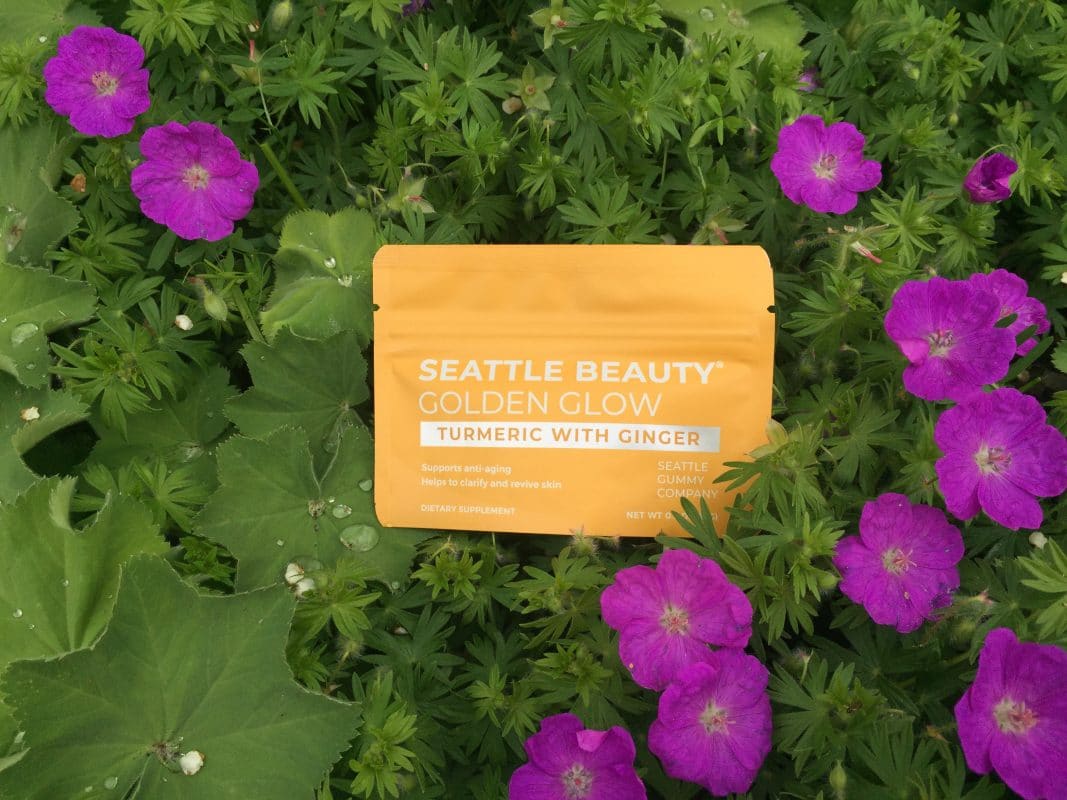Beauty, Blog, Healthy Living
Spicing up your immune system with curcumin
Curcumin (diferuloylmethane) is an orange-yellow colored polyphenol derived from turmeric (Curcuma longa), a spice often found in curry powder. The medicinal use of the turmeric plant has been described in ancient Indian and Chinese thousands of years ago. In India, turmeric has traditionally been used primarily for arthritis and muscular disorders, whereas in China, it has been used as a topic analgesic and for conditions ranging from flatulence, colic, hepatitis, to chest pain. Over the past decades, numerous pharmacological, preclinical and clinical studies have suggested that curcumin has beneficial effects in human diseases such as arthrosclerosis, hyperlipidemia, thromboembolism, myocardial infarction, diabetes, rheumatoid arthritis, human immunodeficiency virus infection, and cancers. This blog provides a summary of the expansive bioactivities from this wonderful herb
Strong anti-inflammatory and antioxidant activities
Curcumin, a potent anti-inflammatory agent, has been studied for its ability to scavenge reactive oxygen radicals which are implicated in inflammation. Studies showed that it is a good scavenger of hydroxyl radical at high concentrations. Curcumin was also studied for Superoxide scavenging activity and was found to be a potent radical scavenger
Strong immune booster
Traditionally known for its an antiinflammatory effects, curcumin has been shown by extensive research to be a potent immunomodulatory agent. For example, curcumin can modulate the activation of immune cells including T cells, B cells, macrophages, neutrophils, natural killer cells, and dendritic cells, which leads to a strong defense mechanism against pathogen infections.
On the other hand, curcumin has also been shown to downregulate the expression of various proinflammatory cytokines including TNF, IL-1, IL-2, IL-6, IL-8, IL-12, and chemokines, most likely through inactivation of the transcription factor NF-kappaB. This has the implication of preventing a run-away immune response such as cytokine storm, which often causes severe damage to organs.
Interestingly, curcumin at low doses has also been shown to enhance antibody responses. This suggests that curcumin’s reported beneficial effects in arthritis, allergy, asthma, atherosclerosis, heart disease, Alzheimer’s disease, diabetes, and cancer might be due in part to its ability to modulate the immune system.
Neuroprotective activities
Neurodegenerative diseases result in the loss of functional neurons and synapses. Neuroprotective approaches work best prior to the initiation of damage, suggesting that some safe and effective prophylaxis would be highly desirable. Curcumin has an outstanding safety profile and a number of pleiotropic actions with potential for neuroprotective efficacy, including anti-inflammatory, antioxidant, and anti-protein-aggregate activities.
Research has shown that curcumin achieves these bioactivities at sub- micromolar levels. Curcumin’s dose–response curves are strongly dose dependent and often biphasic; many effects might not be achievable in target tissues in vivo with oral dosing because of curcumin’s poor oral bioavailability. Therefore, for the desired neuroprotective effect, obtaining highly bioavailable curcumin is essential.
Curcumin has at least 10 known neuroprotective actions. Accumulating cell culture and animal model data show that dietary curcumin is a strong candidate for use in the prevention or treatment of major disabling age-related neurodegenerative diseases like Alzheimer’s, Parkinson’s, and stroke.
Chemoprotective activities
Chemoprevention is a promising anti-cancer approach with reduced secondary effects in comparison to classical chemotherapy. Curcumin is one of the most studied chemopreventive agents. Extensive research has shown that curcumin allows suppression, retardation or inversion of carcinogenesis. Curcumin is also described as an anti-tumoral, anti-oxidant and anti-inflammatory agent capable of inducing apoptosis(meaning cell death) in several cellular systems.
Anti-cancer activities
Research has shown that curcumin possesses diverse anti-inflammatory and anti-cancer properties following oral or topical administration. Apart from curcumin’s potent antioxidant capacity at neutral and acidic pH, its mechanisms of anti-cancer action include inhibition of several cell signaling pathways at multiple levels, effects on cellular enzymes such as cyclooxygenase and glutathione S-transferases, immuno-modulation and effects on angiogenesis and cell–cell adhesion. Curcumin has shown to affect gene transcription and to induce apoptosis in preclinical models, which is relevant to cancer chemoprevention and chemotherapy in patients.
Sufficient data from preclinical evaluations has shown that oral curcumin may be beneficial in patients with invasive malignancy or pre-invasive lesions of the gastrointestinal tract, particularly the colon and rectum.
Inhibitor for angiogenesis
A research group from Harvard Medical School has tested curcumin has been tested for its ability to inhibit the proliferation of primary endothelial cells in the presence and absence of basic fibroblast growth factor (bFGF), as well as its ability to inhibit proliferation of an immortalized endothelial cell line. Curcumin and its derivatives were also tested for their ability to inhibit bFGF-induced corneal neovascularization in the mouse cornea.
The researchers reported that curcumin effectively inhibited endothelial cell proliferation in a dose-dependent manner. Curcumin and its derivatives demonstrated significant inhibition of bFGF-mediated corneal neovascularization in the mouse.
These results indicate that curcumin has direct antiangiogenic activity in vitro and in vivo. The activity of curcumin in inhibiting carcinogenesis in diverse organs such as the skin and colon may be mediated in part through angiogenesis inhibition.
Thanks for reading.
Journal Reference:
1. Jagetia GC1, Aggarwal BB, Spicing up of the immune system by curcumin J Clin Immunol. 2007 Jan;27(1):19-35. Epub 2007 Jan 9. PMID: 17211725, DOI: 10.1007/s10875-006-9066-7
2. R.A.SharmaA.J.GescherW.P.Steward, Curcumin: The story so far, European Journal of Cancer, Volume 41, Issue 13, September 2005, Pages 1955-1968.
3. ElizabethKunchandyM.N.A.Rao∗, Oxygen radical scavenging activity of curcumin, International Journal of Pharmaceutics, Volume 58, Issue 3, 21 February 1990, Pages 237-240.
4. Arbiser, J.L., Klauber, N., Rohan, R. et al. Curcumin Is an In Vivo Inhibitor of Angiogenesis. Mol Med 4, 376–383 (1998). https://doi.org/10.1007/BF03401744

